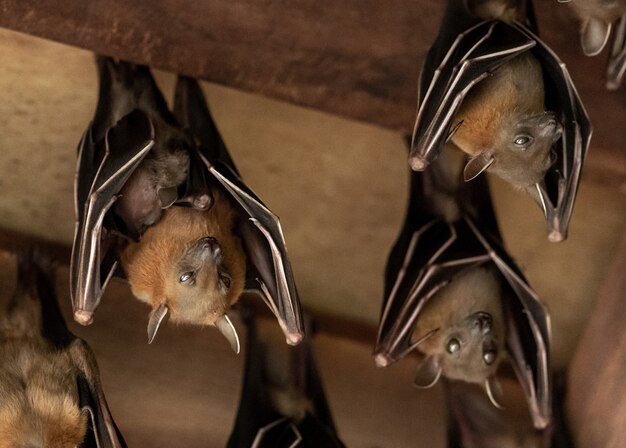views
Bats have been associated with various myths, legends, and superstitions throughout history. One common belief is that if a bat enters your house, it is a sign of impending death. However, it's essential to separate fact from fiction and understand the true nature of bats and their presence in our homes. In this article, we will debunk the myth and explore the reality of encountering a bat indoors.
The Natural Behavior of Bats:
Bats are nocturnal animals and primarily active at night. They possess impressive flight capabilities and use echolocation to navigate and locate prey. Bats are not aggressive toward humans, and their interactions with people are usually accidental.
Reasons Bats Enter Houses:
When a bat enters a house, it is typically a result of confusion or temporary disruption to its regular flight patterns. There are several reasons why a bat may find its way indoors:
-
Searching for Food or Shelter: Bats may enter houses in search of insects or roosting spots. Attics, chimneys, and open windows are common entry points.
-
Lost or Disoriented: Bats rely on echolocation and visual cues to navigate. In certain situations, they may become disoriented or confused, leading them to enter buildings inadvertently.
-
Inadvertent Entry: Bats are small and can squeeze through small gaps or openings, such as cracks in walls or gaps in window screens. They may accidentally find themselves inside a house without any specific intention.
Common Misconceptions:
The belief that a bat in the house signifies impending death is based on superstition and folklore rather than scientific evidence. Bats are not omens of death or associated with supernatural events. They are wild animals that have found themselves in an unfamiliar environment.
Ensuring a Safe Encounter:
Encountering a bat in your house can be unnerving, but it is essential to handle the situation calmly and safely:
-
Maintain Calmness: Avoid panicking or sudden movements that may startle the bat. Stay calm and give the bat space.
-
Protect Yourself: Wear gloves and use a container or a towel to gently capture the bat, if necessary. Avoid direct contact to minimize the risk of potential scratches or bites.
-
Release Safely: If the bat is indoors and can be safely contained, gently release it outside. Ensure there is an unobstructed path for the bat to fly away.
-
Seek Professional Assistance: If you are unsure about safely handling the situation or if the bat appears injured or ill, contact a local wildlife authority or animal control for guidance and assistance.
Conclusion:
Contrary to popular belief, a bat entering your house is not a sign of impending death. Bats are remarkable creatures with important ecological roles. Their presence in your home is typically accidental and can be resolved safely and responsibly. By understanding the natural behavior of bats and dispelling myths, we can appreciate these creatures for their ecological contributions while coexisting peacefully with them.
FAQs:
Q: Are bats dangerous to humans?
A: Bats are not inherently dangerous to humans. Like any wild animal, it is important to avoid direct contact and handle encounters with bats calmly and safely.
Q: Can a bat cause the death of a person?
A: No, bats do not cause the death of a person. The belief that a bat's presence signifies death is a myth and not based on scientific evidence.
Q: Should I be concerned about diseases from bats?
A: While bats can carry diseases such as rabies, the risk of transmission to humans is relatively low. It is always advisable to avoid direct contact with bats and seek professional advice if there is potential exposure.
Q: How can I prevent bats from entering my house?
A: Seal any openings or gaps in your home's exterior to prevent bats from entering. Install window screens and maintain proper attic insulation to minimize the chances of bats finding their way indoors.
Q: What should I do if a bat bites or scratches me?
A: If you are bitten or scratched by a bat, wash the affected area thoroughly with soap and water and seek medical attention immediately. It is essential to determine the risk of rabies transmission and receive appropriate medical advice.












